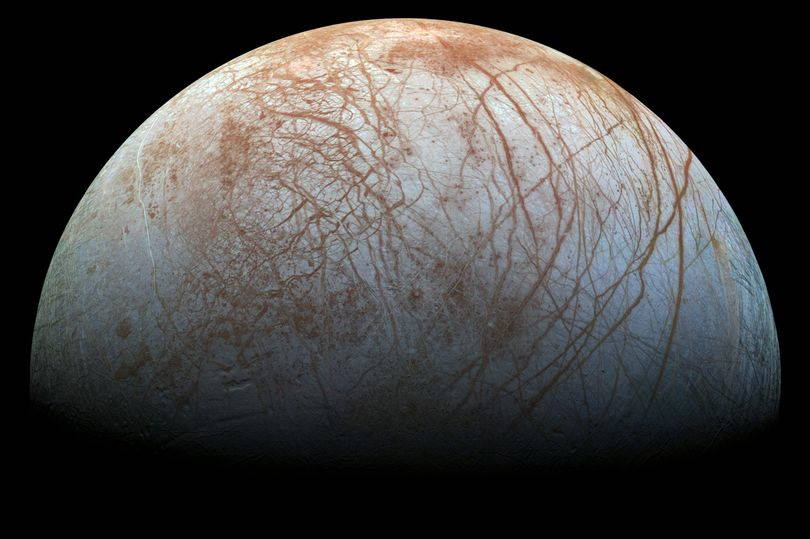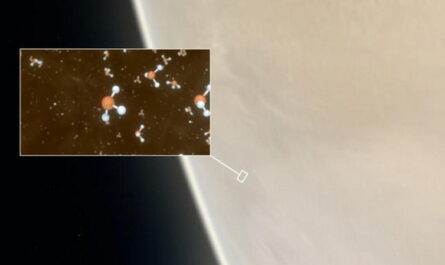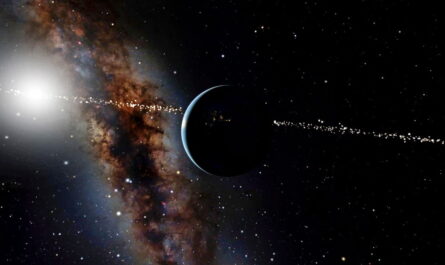The interior ocean on Europa – the smallest of the four Galilean moons orbiting Jupiter – can sustain life, NASA scientists have theorised.
The study, which is not yet peer-reviewed, suggests the water may have been formed by water-containing minerals being broken down by tidal forces or radioactive decay.
Mohit Melwani Daswani, the study’s lead researcher based at NASA’s Jet Propulsion Laboratory in California, said: “Our simulations, coupled with data from the Hubble Space Telescope, showing chloride on Europa’s surface, suggests that the water most likely became chloride rich.
“In other words, its composition became more like oceans on Earth. We believe that this ocean could be quite habitable for life.”
Europa sits 400 million miles from Earth and is one of the largest moons in our solar system. NASA’s planned Europa Clipper mission will launch in the next few years to probe the icy world’s habitability.
“Europa is one of our best chances of finding life in our solar system,” Mohit continued.
“Our models lead us to think that the oceans in other moons, such as Europa’s neighbour Ganymede, and Saturn’s moon Titan, may also have formed by similar processes.
“We still need to understand several points though, such as how fluids migrate through Europa’s rocky interior.”
While Europa is not an exoplanet, the study may ultimately demonstrate how relatively commonplace it is for liquid oceans to form and create the right conditions for life outside our solar system.




